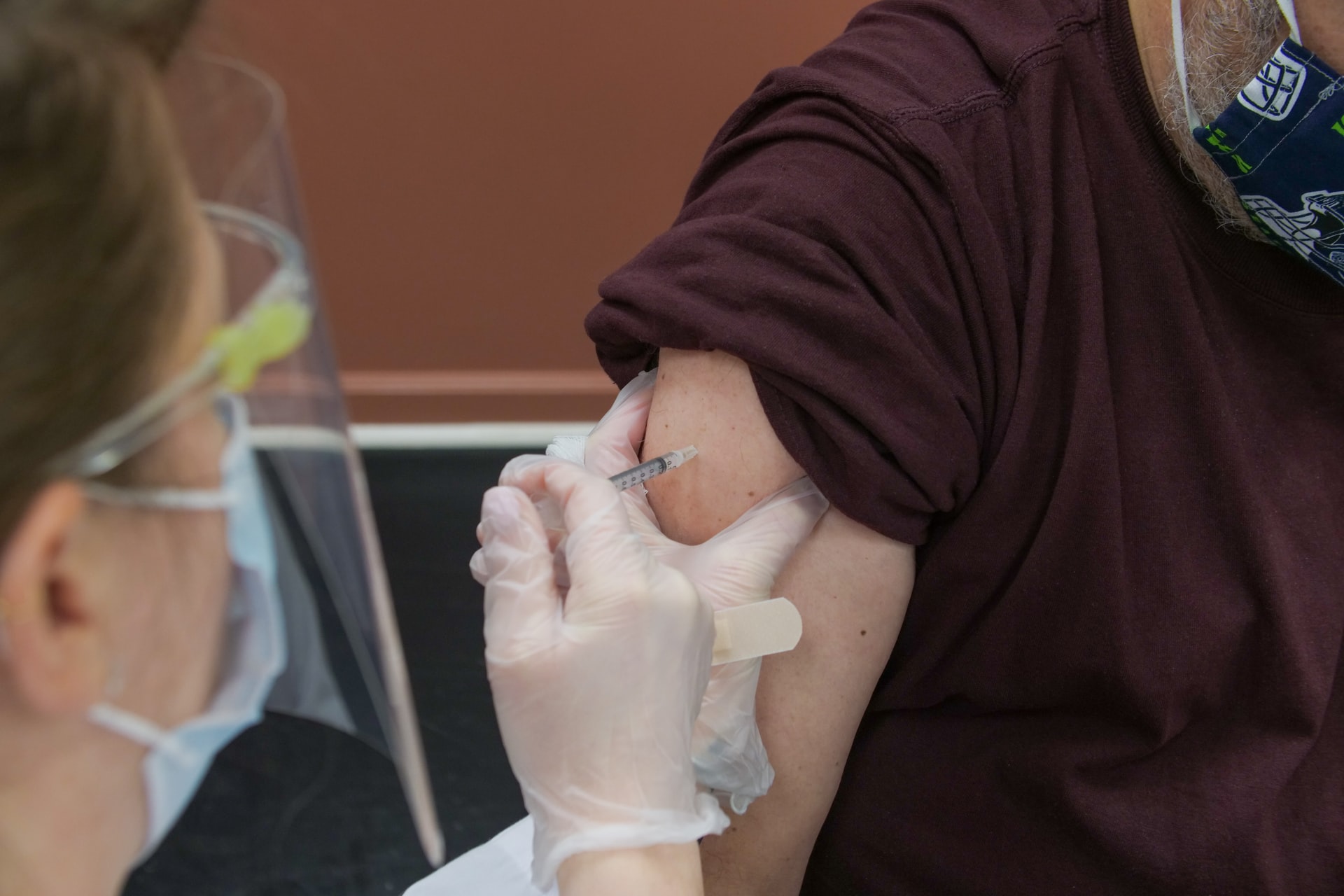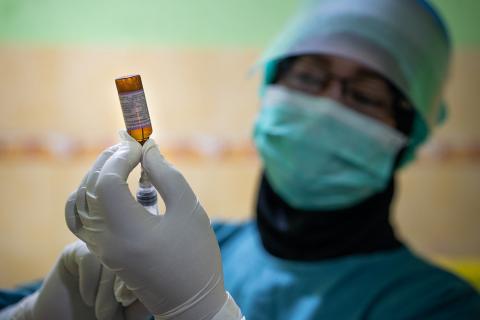COVID-19 Vaccine – What You Need to Know & Types of Vaccine
- /
- COVID-19

Why does a vaccine work?
COVID-19 vaccine is another To understand how vaccines work, one needs to know how our organism fights the infection. When agents causing illness such as viruses invade our bodies, they aim is to take over and multiply. This invasion is what makes us sick. Our body has several ways to fight the invader. Our blood contains a type of immune cells that is called white cells, which job is to fight the infection. Different types of white cells have different way of fighting the infection: macrophages eat and digest germs or dying cells. Their job is also to produce antigens which can be recognized by our body as something foreign which leads to antibodies production and fighting the infection. Cells responsible for antibodies production are B-lymphocytes. Another type of cells are T-lymphocytes, which attack the cells in our body that were already infected with pathogen. The best part of it is that if our body gets familiar with some kind of pathogen it produces the tools necessary to fight it and then when we come across the same pathogen in the future, our T-lymphocytes, called memory cells, are ready to protect our organism from it.
COVID-19 vaccine
 Now that we know how our body knows how to fight a pathogen such as virus we can talk about COVID-19 vaccine. There are different types of vaccines but all of them aim at developing the immunity without causing the disease. After vaccination our body has a supply of memory T-lymphocytes as well as B-lymphocytes and is ready to fight the virus when necessary. Production of these cells after vaccination takes a couple of weeks for our body so one has to remember to stay safe for some time after vaccination before we develop protection. We also have to remember that building our immunity is a process and it can cause some symptoms such as fever, which is totally normal and usually a good sign.
Now that we know how our body knows how to fight a pathogen such as virus we can talk about COVID-19 vaccine. There are different types of vaccines but all of them aim at developing the immunity without causing the disease. After vaccination our body has a supply of memory T-lymphocytes as well as B-lymphocytes and is ready to fight the virus when necessary. Production of these cells after vaccination takes a couple of weeks for our body so one has to remember to stay safe for some time after vaccination before we develop protection. We also have to remember that building our immunity is a process and it can cause some symptoms such as fever, which is totally normal and usually a good sign.
See also: “COVID-19 – What You Need to Eat to Develop Immunity”
Types of vaccines for COVID-19
There are currently 3 main types of vaccines produced for COVID-19.
Type 1
- mRNA vaccines contain genetic material of the SARS-CoV-2 virus which encodes part of spike protein of this virus. Spike protein can be found on the surface of the coronavirus and it is not causing illness by itself, but is typical for this specific virus. Our cells use this genetic material to produce this protein and destroy it afterwards. Our body recognizes the protein as foreign and the two types of cells that you could get familiar with earlier, namely T-lymphocytes and B-lymphocytes, will start antibodies production. In the future your organism will know, thanks to memory cells, how to fight the virus. mRNA vaccines have been developed by scientists for decades. They are easier in production than traditional vaccines (listed below) and time of their synthesis is much shorter. This type of vaccine has already been studied for different viruses such as Zika, flu, rabies and cytomegalovirus (CMV). This type of the vaccine is produced by Pfizer-BioNTech and Moderna.
Type 2
- Another type of vaccine contains a small piece of harmless protein of SARS-CoV-2 virus. In this type of vaccine our body doesn’t have to produce the protein so we start at the point were our cells recognize the protein that shouldn’t be there and antibodies and T-lymphocytes production begins. This type of vaccine is now produces by Novavax.
Type 3
- Last type is vector vaccine, which consists of a fragment of Sars-CoV-2 genetic material, which is encapsulated in empty, harmless virus particle – viral vector. Again, our cells use this genetic material as instructions to produce the protein of coronavirus. Our body recognizes the protein as one that doesn’t belong and two types of cells that you could get familiar with earlier, so T-lymphocytes and B-lymphocytes, will start antibodies production. In the future your organism will know, thanks to memory cells, how to fight the virus. Viral vectors have been created for the first time in 1970s. They have been studied in other arrays of research such as gene therapy, cancer treatment or molecular biology research. Example of viral vector vaccine is one used during recent outbreaks of Ebola. This type of vaccine is produced by AstraZeneca and Janssen.
Vaccination is always better than getting sick
A lot of people are scared of vaccination but we have to remember that it is the only safe way to get immunity against this virus without the risk of the serious consequences that may occur during or after COVID-19 infection. One has to know that the right dose of vaccine cannot cause COVID-19. All of the vaccines undergo very rigorous testing of their safety and effectiveness.
